Hollywood & Spine Archive: The Ultimate Spin
An overview of the novelization to SPIDER-MAN, originally published in May 2023.
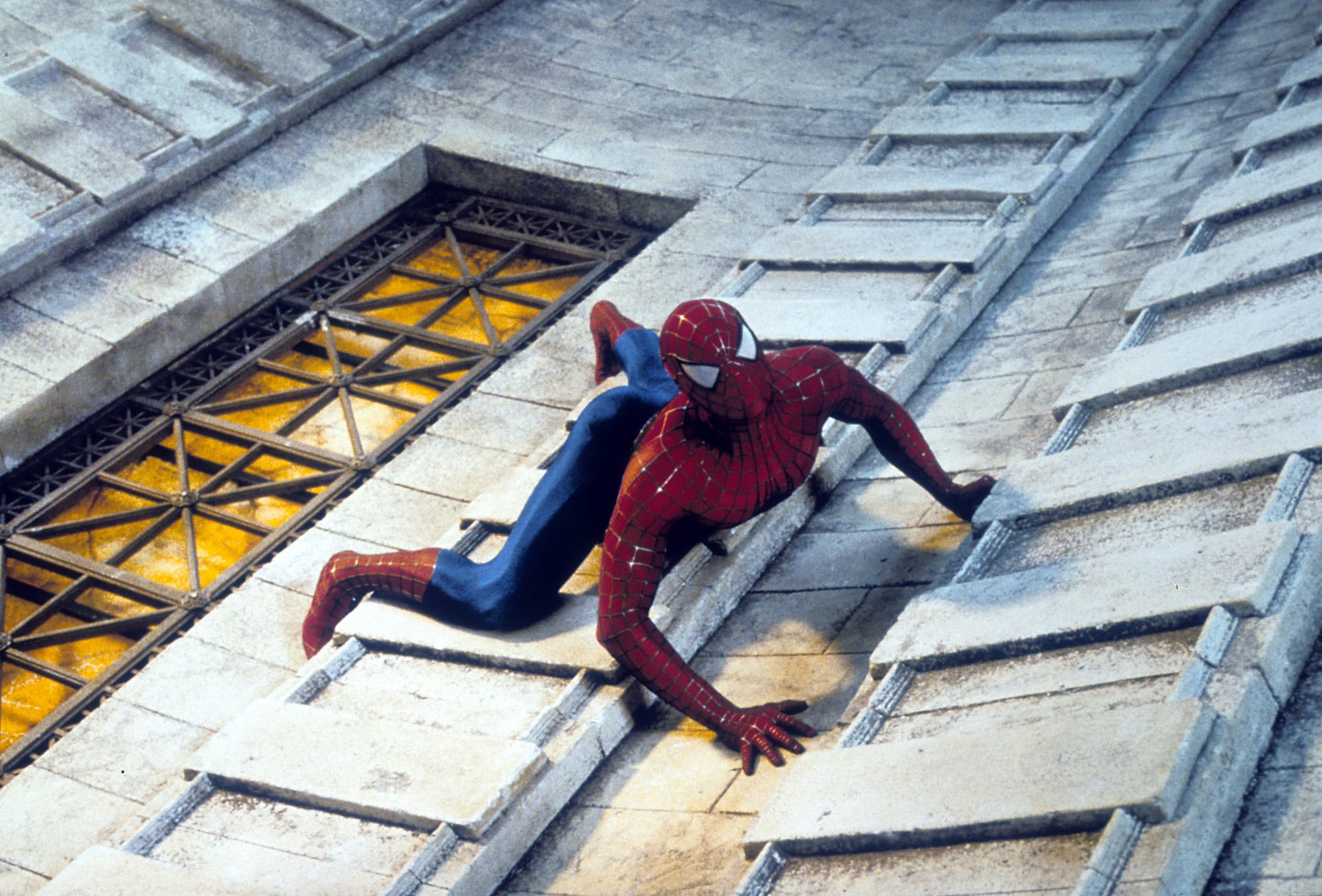
Re-reading this, I simply thought back to the last time I watched this movie with my good friend Joshua Rivera and just really delighted in the unserious fun of it all. If I can get back to that with Marvel movies, maybe I'll start watching them again. Here is where I try to do a clapping chant for "fun! fun! fun!" that ultimately goes nowhere. (Originally published 5/17/2023)
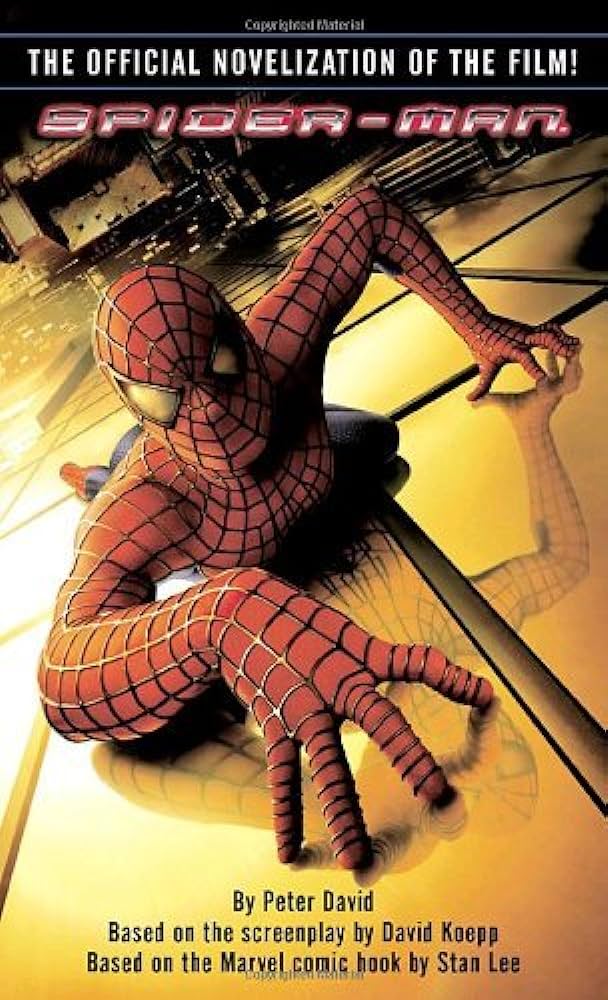
Spider-Man by Peter David (based on the original screenplay by David Koepp; based on the Marvel comic book by Stan Lee [& Steve Ditko]) (Ballantine Books/Del Rey, 2002)
The pitch: An unassuming Queens teen has his life (and DNA) altered by a radioactive spider, becoming a superhero beloved enough to appear in more than a dozen films in the 21st century.
The author: One of the most prolific names in tie-in media, Peter David's credits include dozens of novels set in the Star Trek universe as well as nearly all Marvel Comics-based novelizations released since 2000 (including the Iron Man recap sent to your inbox this week). This should come as no surprise given his many bylines in the comics themselves, notably a 12-year, award-winning run on The Incredible Hulk and original writing on X-Factor and Spider-Man 2099.
The lowdown: Consider the quiet before there was a single thwip at your local multiplex.
Was there anything to indicate that Peter Parker was the one who'd help this stuff reach a new level of critical mass? By the end of the 20th century, Marvel Comics had a shaky enough cultural footprint that Michael Jackson considered buying them from the toy company that owned them, and a film based on their heroic wall-crawler was once set to be the crown jewel of schlockmeister producers Menahem Golem and Yoran Globus of Cannon Films. Not even a treatment by a post-Terminator 2 James Cameron could get off the ground.
Then, the unthinkable: a scrappy adaptation by Evil Dead director Sam Raimi, starring a fresh-faced cast of up-and-comers and a soundtrack album of buzz-bin rock, becomes the first film to gross $100 million in an opening weekend. Alongside the X-Men films of the '00s, Spider-Man and Marvel seem like a surer bet, which leads to weird (a blockbuster version of Iron Man starring the previously unbankable Robert Downey, Jr.), weirder (Disney buys the entire Marvel universe, making more than two dozen interconnected movies and shows and strangling pop culture into submission) and weirdest (Sony keeps making various Spider-Man movies to maintain their rights to the character, working semi-harmoniously with Disney to integrate Tom Holland's boyish portrayal into the Marvel Cinematic Universe, even appearing alongside two previous live action versions of the character).
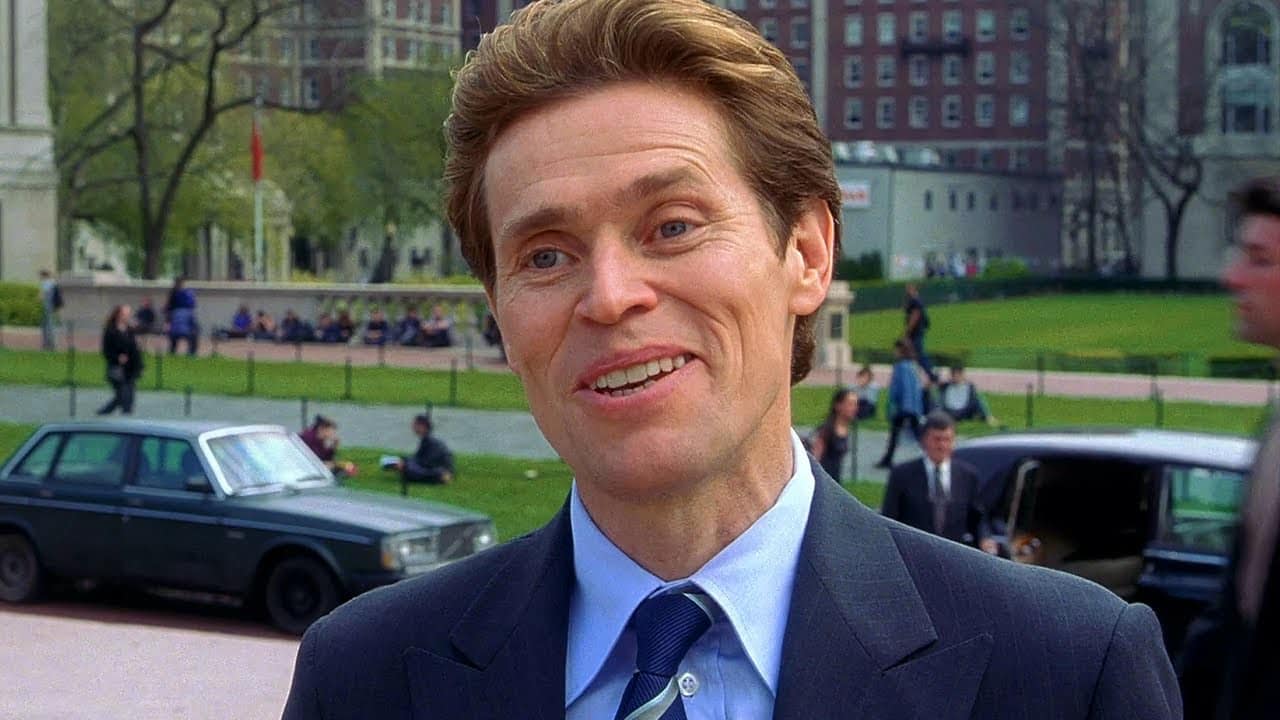
The MCU has done a lot of things, for better or worse; one thing I'd log into the latter column is the abandonment of novelizations, likely due to either fears about precious plot details leaking from their publication or, you know, stinginess. Only the earliest entries of the MCU's retroactive "Phase One" - Iron Man and The Incredible Hulk - have received novelizations. They, along with three adaptations of Raimi's Spider-Man films and the first attempts of the 21st century at Fantastic Four and Hulk movies, were all written by David.
He's a notable name to a certain generation of comic consumers, and reading this book, it's not hard to see why. As a novel writer, he prioritizes filling in the interior lives of characters and marginalia that a movie or a comic might not have room for. (In his own comics career, David was at this point transitioning from writing comics in the "Marvel method" - in which the author provides an outline and dialogue and leaves the plotting to the artist - to a more thorough "full script" approach.) He's extremely adept at shading in aspects of this particular Spidey story - namely, the familial bonds of our lead characters. The kindness Peter Parker's adoptive aunt and uncle show him contrasts well to the misguided frostiness between biotech titan Norman Osborn and his teenage son Harry as well as the outright hostility between Mary Jane Watson and her abusive dad.
David excels at filling in details and ideas you didn't know you'd want throughout the book. Our story begins with Spider-Man stopping a group of troublemakers in a cemetery before visiting the grave of his beloved Uncle Ben and catching him up on life as a superhero, utilizing the film's opening narration as dialogue. Another pivotal early sequence, recalling Peter's adoption by Uncle Ben and Aunt May after his parents' death in a plane crash, adds a detail of Peter consistently writing to his mom and dad in a journal, giving us even more of a peek into his mind than the already-generous third-person omniscient narrator.
Perhaps David's best work comes in the characterization of Norman Osborn. While Willem Dafoe's rollicking performance makes a convincing case that the character was some kind of crazy before becoming the villainous Green Goblin, the book takes great pains to muddy how much of the "real" Norman is in control. Early on, he tries harder to be a good, kind father to Harry, and it sometimes pays dividends in his professional life, like when the gift of a boogie board inspires him to create the glider that the Goblin later uses for transport. The corrupted Osborne later lays thick his love for Harry in their last scenes together, which heighten the boy's misguided rage believing that it was Spider-Man who killed his dad. (And you still get the film's most meme-worthy line from the character!)
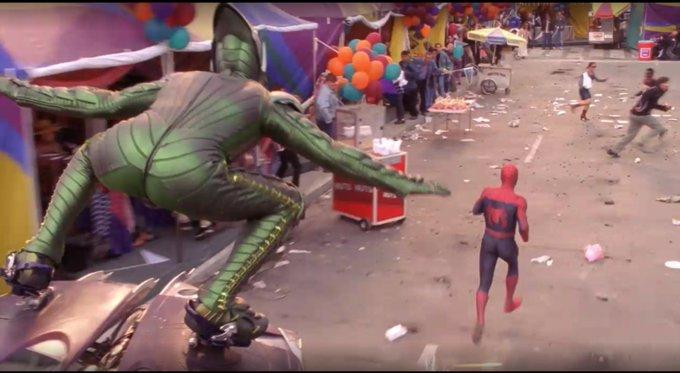
This added characterization doesn't always succeed. Parker's desire for school crush Mary Jane to see his good side, instead of cozying up to meathead bully Flash Thompson, comes off to modern eyes as a different sort of entitled male toxicity. (To David's credit, it's a stance that evolves with the character, as he takes the "great power/great responsibility" mantra to heart through the story.) And the generous peeks into Parker's headspace don't leave a lot of room for whiz-bang depictions of Spider-Man's heroics once he's established as a figure throughout New York City, which feels like a key selling point to a story like this one - which was, you might remember, promoted with an action-packed teaser that was shelved after the 9/11 terrorist attacks. (Serious discussion of Peter's powers is served quickly in a nearly-unfilmable sequence that has our hero discover his agility, spider sense and wall-crawling ability after a near-collision with a truck while chasing after the school bus.)
The universe: Where things really get unusual in the Spider-Man novel is the attempts to draw in other portions of Marvel lore in a way that comic book movies just weren't doing at the time. (By comparison, you can count the references to Superman in the Batman films of the '80s and '90s on one hand.) It's really funny to consider what these references meant in 2002, more of Easter eggs for fans than indicative of any cinematic crossovers that are somewhat old hat by now in the MCU.
Among the cheeky references to Marvel properties in this book:
- Osborn thinks about how the best scientist he was unable to recruit to his lab was Dr. Henry Pym, the original Ant-Man.
- Spidey's wrestling match is seen on television by Uncle Ben, who notes that the unlikely victor "apparently does whatever a spider can."
- One of Bonesaw's hapless victims before taking on the wall-crawler is Battling Jack Murdock, who later witnesses Spider-Man stop a robbery and excitedly calls his son Matt to gush over the "daredevil" he saw in action.
- The officers on the scene when Uncle Ben is shot are named Leiber and Ditko.
- There's a passing reference to an "Incredible Hulk" in New Mexico, as well as an honestly very funny moment where Daily Bugle editor J. Jonah Jameson remarks on the silliness of alliterative names like "Green Goblin" before being informed of meetings with Bruce Banner and Reed Richards.
- I've saved the weirdest for last: Oscorp board member Fargas - the bald one in the wheelchair - is compared by Osborn to "the professor character from that mutant movie," meaning X-Men is a work of fiction in this world.
The book also winks to the source material more than once: Ben Parker drives the Oldsmobile Delta that Raimi puts in most of his films, while Mary Jane confesses to Harry that she was "creeped out" by the little kid in Interview with the Vampire, who of course was Kirsten Dunst, the actress playing MJ in this very film.
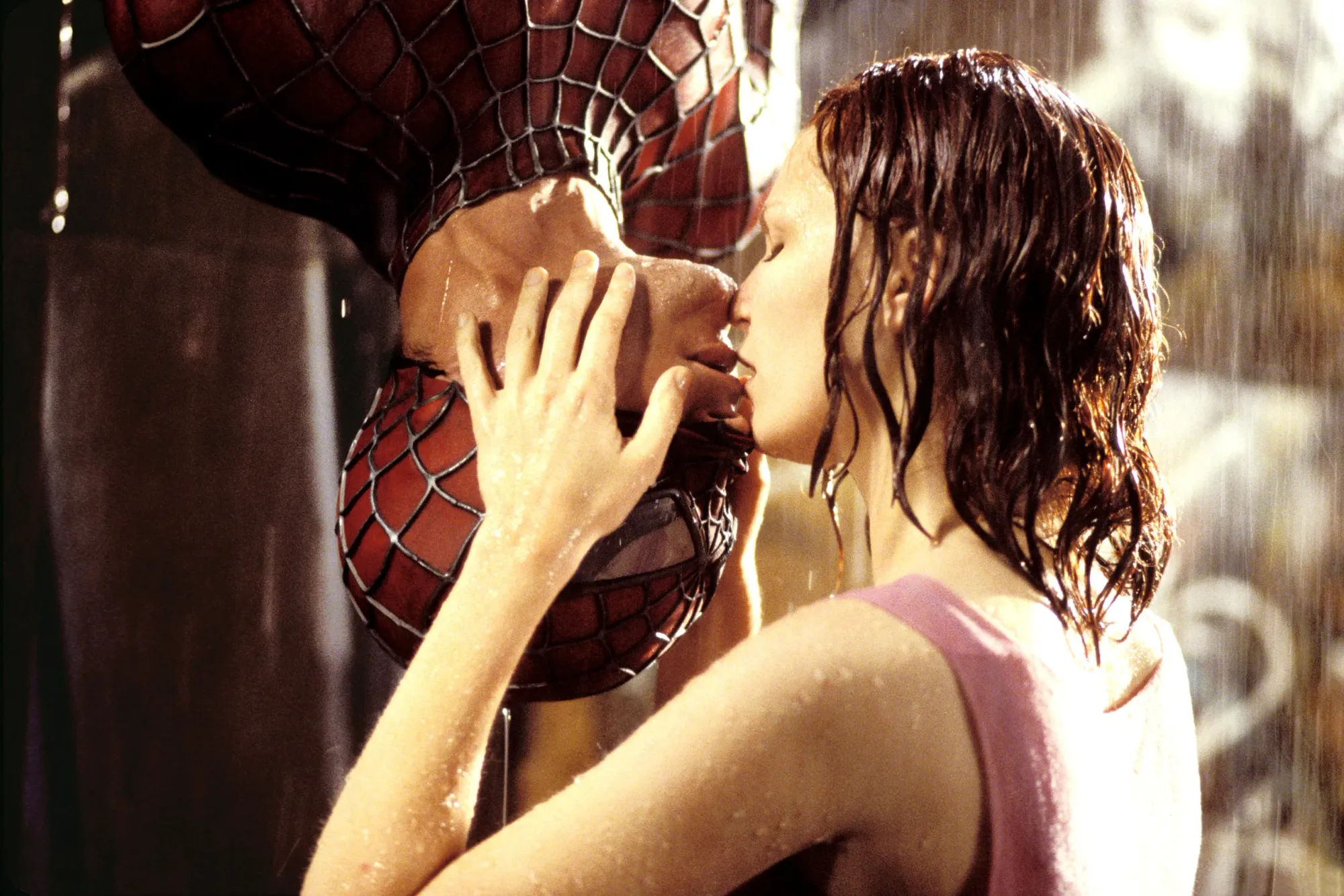
The cutting room floor: Most of the scenes that only take place in the novelization seem to have been in various script drafts but, by all accounts, never seemed to be filmed. Jameson is introduced at an elite club where he debates Osborn on heroism in the age of new media, well before Parker is bitten by a spider. Another Spider-Man character who makes an appearance here is Parker's lab advisor Dr. Curt Connors. Though he wouldn't appear until Spider-Man 2, his characterization and dialogue are almost verbatim to what Dylan Baker delivered in that sequel, with plenty of foreshadowing in the form of the caged lizard he studies.
Mary Jane gets a couple of extra character beats here. She's compelled to visit Peter after graduation, but ends up having a heart-to-heart with Harry, who takes her to Sardi's and pretty quickly woos her into becoming his girlfriend. Her failed audition (before the infamous attempted mugging and inverted kiss in the rain) is shown, not told, and turns out to be a sabotage: the casting director is Flash Thompson's aunt. MJ and Peter finally share an emotional moment when he attempts to console her after both Osborns rebuke her at Thanksgiving, and her climactic ordeal gives her the strength to rebuke her father in person before attending Norman Osborn's funeral.
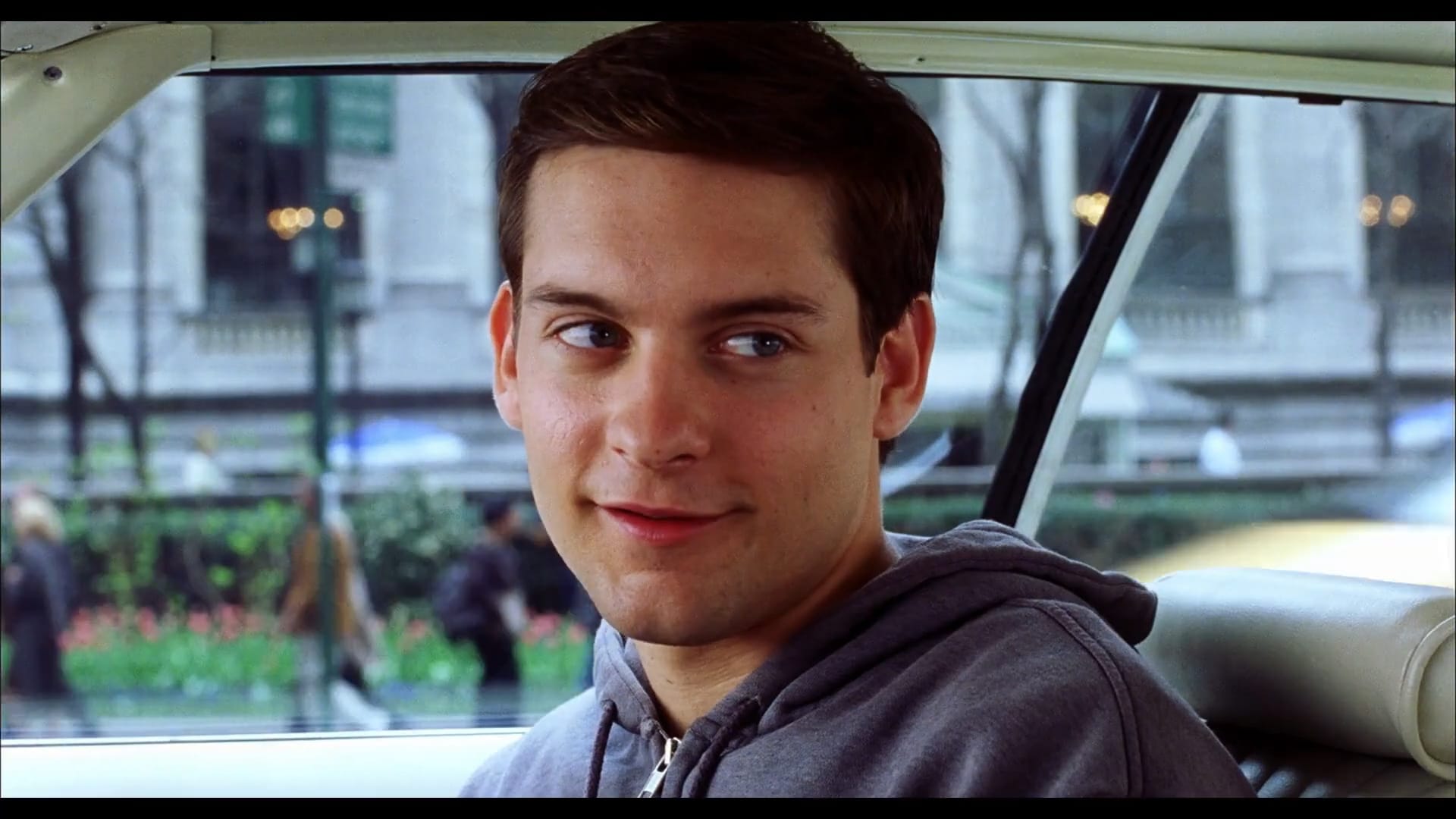
Finally, there's a very pat alternate ending in which avowed Spider-Man hater Jameson admits to himself that he does so out of jealousy for the superhero's selflessness. He thinks about all this after an office boy at the Bugle finds a pair of Parker's pants in a nearby closet, almost giving away his identity. Sure!
The last word: As a novelization, Spider-Man doesn't quite stack up to the charm of its celluloid source material. But it does serve as a fascinating time capsule of a very different kind of Marvel universe - one that wasn't so big and obligatory, but would get there, partly thanks to movies like this.
